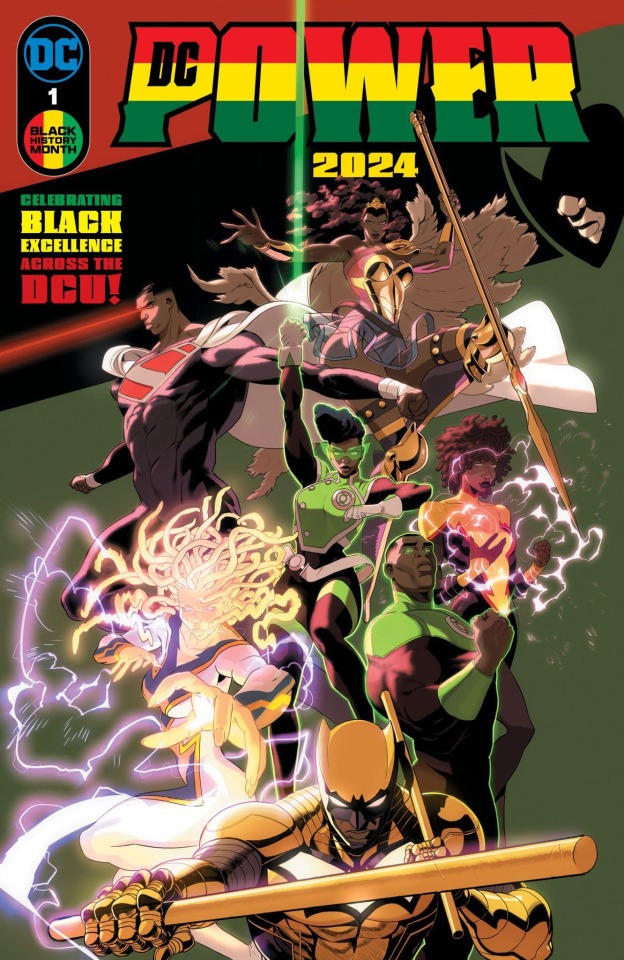#Thomas Giles
Text
thinking about it, and in the canon timeline, i think giles telling thomas about jenny would have just earned him fury. why bring a good woman into the line of fire??
#miscellany#thomas giles#in the giles tradition thomas does not elaborate as to why he is being so fucking weird about this
15 notes
·
View notes
Photo









𝐓𝐡𝐞 𝐕𝐚𝐫𝐢𝐚𝐧𝐭𝐬 𝐚𝐧𝐝 𝐒𝐨𝐧𝐬 𝐨𝐟 𝐀𝐭𝐡𝐞𝐧𝐚/𝐌𝐢𝐧𝐞𝐫𝐯𝐚
Always at least five steps ahead of everyone else, these men are valued because of their ability to think outside the box. They’re unique and sometimes unpredictable. People could call some genius’; they’re the bosses, the leaders, the ones who people find themselves following. Some use their intelligence and wit to be good, but most use it for self-gain.
𝑇ℎ𝑜𝑚𝑎𝑠 𝑆ℎ𝑒𝑙𝑏𝑦
𝐷𝑢𝑚𝑏𝑙𝑒𝑑𝑜𝑟𝑒
𝑃𝑟𝑜𝑓𝑒𝑠𝑠𝑜𝑟 𝑋
𝑃𝑒𝑡𝑦𝑟 𝐵𝑎𝑒𝑙𝑖𝑠ℎ
𝐺𝑎𝑛𝑑𝑎𝑙𝑓
𝑅𝑢𝑝𝑒𝑟𝑡 𝐺𝑖𝑙𝑒𝑠
𝑀𝑜𝑟𝑖𝑎𝑟𝑡𝑦
𝑁𝑢𝑚𝑏𝑒𝑟 𝟻
𝐶𝑎𝑝𝑡𝑎𝑖𝑛 𝐵𝑎𝑟𝑏𝑜𝑠𝑠𝑎
#variant meme#variants#thomas shelby#peaky blinders#dumbledore#albus dumbledore#harry potter#professor x#mutants#petyr littlefinger baelish#petyr baelish#game of thrones#gandalf#lord of the rings#rupert giles#buffy the vampire slayer#moriarty#james moriarty#sherlock holmes#number 5#the umbrella academy#pirates of the caribbean#captain barbossa#barbossa#hector barbossa
258 notes
·
View notes
Text

My DRDT OC.
#danganronpa#danganronpa despair time#drdt#ace markey#arei nageishi#charles cuevas#hu jing#j moreno#j rosales#levi fontana#eden tobisa#teruko tawaki#min jeung#xander matthews#david cheim#dangonronpa#veronika grebenshchikova#whit young#nico hakobyan#rose lacroix#arturo giles#digital art#art#artists on tumblr#I used the ibisPaint X materials because I can't draw#asexual#aromantic#aroace#lola thomas
19 notes
·
View notes
Text
The Sides as Buffy the Vampire Slayer characters, written for my own satisfaction:
Roman as Buffy. Peppy, headstrong chosen one with a penchant for quips? Absolutely.
Virgil as Angel. Vampire with a soul and, subsequently, depression. Probably burdened with glorious purpose or something.
Logan as Giles, no shit. The actual librarian. The Slayer's mentor and the teacher and the one with the books and all of that shite. We love.
Patton as Willow. The Slayer's best friend, the one with the sweet disposition and the one who snaps and turns a man inside out and then sets him on fire when they kill her girlfriend.
Janus as Spike. Their aesthetics don't match but they're both spiteful little fuckers and Spike and Angel hate one another almost as much as Janus and Virgil do. Shit's funny.
Remus as Drusilla because they're both fuckin batshit I guess lol there is no other similarity between them
#remus sanders#sanders sides#roman sanders#thomas sanders#virgil sanders#logan sanders#patton sanders#janus sanders#buffy the vampire slayer#buffy summers#rupert giles#willow rosenberg#spike btvs#angel btvs#drusilla#fuck xander i guess
37 notes
·
View notes
Text
Character Spotlight: The Chemist (Ayreon's The Source)

Ask and ye shall receive.
In the grand scheme of countless intertwining Ayreon headcanons infesting my brain, I like to have a nice, compact theme to refer back to for each album. Arjen is borderline intentional about not putting themes in his work, but they creep in anyway and you can dig them up and work off of them with a little elbow grease.
For me, The Source is about loss of purpose, which is sort of an overarching theme of the Forever saga anyway, but it shows up on a more intimate level in this album. Especially when you pull traits for characters out of thin air when you're 14 and eventually find a red thread through the lot of them you didn't actually plan for.
I did a really general overview of most of my versions of the Source cast and their whole deal while they're on Alpha. Just a whole mess of science, religion and state all crammed into one, eventually leading to the 'Frame taking over. In some way or another, these people all know each other and support a cause of some sort. When they're forced to leave their home planet, they have to grapple with the fact that their lives there were altogether pointless and figure out how to embrace the sense of rebirth that's a part of the Forever package.
Almost all of their arcs follow the same overall timeline: they had some *thing* they had worked towards for the better part of their lives, it's all ripped away in an instant with Alpha's destruction, and during their time on Starblade, they work their way back up to a new sense of collective self-worth.
There are, however, a few notable outliers. The Captain, The Chemist and TH-1 still have that theme thing going for them at the end, but how they get there is a little different.
So. Chemist. Like I said, pretty much everyone in the cast has an idea of who everyone else is. Not this guy.
Thomas Giles Rogers is an organic chemist with zero personal affiliation with any other character pre-album story. He graduated from the same enormous central university most of them did, but had no interest in tying his research, much less his entire career, to the fate of the planet itself. Not that he was ever offered or cares about politics at all, but still.
His motivations lie on more personal grounds. Giles is prone to stress, nervous breakdowns in academic settings, all that fun stuff. He always has been. His doctoral dissertation and the ten years of his career following it were dedicated to the synthesization of safe alternatives to sensory deprivation drugs. Either supplemental to the process or replacing it entirely. His "big" project for most of that time was an injection meant to temporarily alter the human respiratory system, allowing someone to breathe underwater for therapeutic processes.
The endeavor was a total failure, for all the resources put into it. Giles is forced to abandon the project after years of constantly being denied grants to pursue its production. People not prioritizing what he wants to use it for, his ineffective presentation, him refusing to let people hire him for research to weaponize it, whatever. All that work was for nothing and it takes genuine a toll on him.
It's really just a career slump, but his self-worth is so firmly attached to his perceived academic success that he can't cope. Four years before TDTTWBD, he drops all his research, picks up some entry-level lab tech job and just goes through the motions. No grandiose motivation to save the world like the rest of these yahoos, just surviving.
But anyhow. Russell does his thing, the 'Frame takes over, and one way or another everyone except Giles is crowded in Nils' basement accepting their fate and hopelessly looking for livable planets with no power or digital resources.
Gross oversimplification of Chronicle I, by the way. Russell drags a broken android into the place, Floor shoots Simone's ear off, etc.
The only remotely plausible option is Y, pretty grim given that the surface is uninhabitable and colonization could only occur if everyone somehow grew gills. As Hansi laments when a switch goes off in his brain and he remembers some science expo he went to a few years back, where some guy was presenting prototypes for...pretty much exactly that.
By pure coincidence, Giles is one of Simone's clients, signed onto her private practice she started after quitting her job as the previous president's counselor. She knows where he lives and works, and she and Tommy manage to track him down amidst the literal apocalypse outside (on account of Tommy having no scientific background and pretty much no other use to the group than scavenging for essentials on the surface in this part. Bonus points that he knows how to use a gun and supposedly doesn't care about his own death).
Giles, like a lot of people has basically been hunkered down in his apartment since the 'Frame took power (about three weeks) and is all paranoid and starving when they find him but they find him, take him back and convince him to pick his work back up all the same.
So he's part of the group now, and alternative to everyone else on Starblade who has no point to their lives now, Giles has FAR too much of a point. Using years old notes and limited resources, he has to create the greatest scientific advancement in the history of mankind in the maybe....six months that people onboard are able to live outside of suspended animation. The total extinction of the human race to follow if he fails.
This...does not mix well with
1. his whole self-induced, major-accomplishment based pressure thing since it's a wildly amplified version of it
2. The fact that he killed a woman during Run! Apocalypse! Run! (defending another character but still) and his control to give life and take it away over so many people, existing and prospective, constantly rotating in his brain
3. The more upbeat, hopeful characters unwittingly holding their expectations for their brave new world over him and what Liquid Eternity needs to be to satisfy them
4. Pretty much everyone else involved in the political side of things deliberately ceased contact with friends or family outside the party's inner circle, to prevent distractions or the possibility of blackmail, while they were still on Alpha. That devaluing of personal relationships is what they're conditioned to and this is more the focal point of Tommy, Floor and Tobias' sort of...joint character development situation, but it has an effect on Giles. This much more openly sensitive, emotional guy is surrounded by these jaded assholes who have no sense of the pressure he's feeling in more ways than one. This effect also applies to James (Historian) in a way, and the two actually kind of have a rapport going about it at the end of Chronicle II (syncing up with their little Condemned To Live duet), but the only person who seems to fully get what's happening to Giles is Simone, someone who deliberately separated herself from said jaded political asshole clique and who has prior knowledge of his experiences on account of literally being his therapist.
All in all just. Not having a good time, insisting that he has to do this alone and eventually external assistance from one or more characters being the only thing that solves it.
The other part of this compact theme thing is that our purpose, our humanity, is defined by our relationships and reliance on other people. We need something to strive for in order to feel like a person, and ultimately that 'something' comes down to either the preservation of the self, the other, or of the collective.
Once you resolve that, there is one other thing that defines the human experience and that is death.
Death and a point, a person, to avoid it in the name of. And Liquid Eternity took both of those things away. From there arises stagnation and a lack of purpose with no means of escape, the hallmark of the Forever Race.
-
-
-
(gosh, I wonder if that ties into members of the party forcing away loved ones in the name of their progress even though it was pointless in the end. Or TH-1's self-preservation being their downfall after all the talk of cooperation and acceptance of emotional openness. Who's to say.)
#ayreon#the source#I came up with most of this when I was taking chemistry in high school and it was one of the most miserable experiences of my life#and then the night after my exam I solved this massive plot hole involving him after like a year of letting it sit it was actually hilariou#anyways captain is more like#the contradiction of his lifelong dream being fulfilled only in the absence that of the people he loves#and TH-1 is like the actual obvious canon one#so fun#What else do yall wanna hear I'm curious and whatever you say I probably have something for it#I could talk so much about Transitus and the varied ways we deal with grief and how all the characters represent a different route of it#arjen lucassen#science fiction#sci fi#fanfiction#progressive waves art#prog rock#prog metal#power metal#folk metal#thomas giles rogers#between the buried and me#writing
15 notes
·
View notes
Text
Preview: DC Power 2024
DC Power 2024 preview. DC Power returns for round two with brand-new stories spotlighting Black characters from across the DC Universe #comics #comicbooks

View On WordPress
#alitha martinez#asiah fulmore#brandon thomas#cheryl lynn eaton#comic books#Comics#dc comics#dc power#denys cowan#deron bennett#dominike stanton#edwin galmon#greg burnham#jahnoy lindsay#jamal campbell#jarrett williams#john ridley#khary randolph#lamar giles#moritat#sean damien hill#serg acuna#tony akins
2 notes
·
View notes
Text

Bad movie I have Sweet Home Alabama 2002
#Sweet Home Alabama#Reese Witherspoon#Josh Lucas#Patrick Dempsey#Candice Bergen#Mary Kay Place#Fred Ward#Jean Smart#Ethan Embry#Melanie Lynskey#Courtney Gains#Mary Lynn Rajskub#Rhona Mitra#Nathan Lee Graham#Sean Bridgers#Fleet Cooper#Kevin Sussman#Thomas Curtis#Dakota Fanning#Mark Skinner#Michelle Krusiec#Phil Cater#Michael Snow#Bob Penny#Mark Matkevich#Lee Roy Giles#Afemo Omilami#Kevin Hagan#Dennis Ryan#Jim O'Connor
0 notes
Text
Monthly Reading Summary
Check out my review of what I read in February!

View On WordPress
#amy elroy#Beth O&039;Leary#Book#Books#cari thomas#eric sterling#genevieve gornichec#giles keating#lucy worsley#Monthly Reading Summary#Monthly Summary#national archives#nikita gill#phillipa ashley#Reading#Reading Summary#sarah hodder#sarah-beth watkins#Sophie Kinsella#tessa bailey
1 note
·
View note
Note
💍🎶🚫
hmmmm let's do thomas! been a minute since i've talked about him.
💍 RING — does your oc have any piercings? do they want any (more) piercings?
alice tried to get thomas to get his ears pierced while they were traveling and it didn't work bc he was worried about what that would look like to the council. she bothered him about it for a really long time until she got distracted and forgot about it. that was pretty much the only way he was getting out of that situation.
🎶 MUSICAL NOTES — what type of music does your oc like? do they listen to music very often?
thomas likes jazz :) he thinks it's extremely fun! he loves to dance alice around the kitchen. she is very bad at it.
🚫 PROHIBITED — does your oc drink/smoke? do they do it regularly, or is it more on occasion or for special events?
thomas doesn't drink very often anymore because he is a total lightweight and he will always try to drink about as much as everyone else is drinking (this man has a whole complex about Looking Normal) and then he will get very giggly and wasted and talk about alice for three hours and he will have to get carried home by his wife and this will be all everyone talks about at the office for multiple weeks. (alice thinks this is HILARIOUS. this is not helping.)
he does smoke on occasion! alice hates it. he picked it up again after she died, mostly just to make himself feel worse.
#asks#never mind the years of wasted time#thomas giles#alice and thomas are mostly just cute! mostly! i mean basically! i mean it's fine!
2 notes
·
View notes
Text


As always, my favorites of the year list was beset by last minute changes, doubts, and decisions, especially because this year I forced myself into a top 10!
Second photo is my honorable mentions...I literally already have regrets! Ask me anything about these top choices—I'm happy to share my reviews, thoughts, and more!
My Top Ten of 2023:
Tale of Genji by Lady Murasaki Shikibu tr. Seidensticker
Nettle & Bone by T. Kingfisher
Our Wives Under the Sea by Julia Armfield
We Deserve Monuments by Jas Hammonds
The Vaster Wilds by Lauren Groff
What We Don't Talk About When We Talk About Fat by Aubrey Gordon
Ace by Angela Chen
Babel by R.F. Kuang
Chain-Gang All-Stars by Nana Kwame Adjei-Brenyah
Our Share of Night by Mariana Enríquez tr. McDowell
Honorable mentions:
Now Go: On Grief and Studio Ghibli by Karl Thomas Smith
What I Talk About When I Talk About Running by Haruki Murakami tr. Gabriel
The Water Outlaws by S.L. Huang
White Cat, Black Dog: Stories by Kelly Link
The Word for World is Forest by Ursula K. Le Guin
When the Hibiscus Falls by M. Evelina Galang
Let Us Descend by Jesmyn Ward
The Spare Man by Mary Robinette Kowal
Bleed: Destroying Myths and Misogyny in Endometriosis Care by Tracey Lindeman
Never a City So Real by Alex Kotlowitz
The Crown Ain't Worth Much by Hanif Abdurraqib
Sons of Darkness (Jan ’24) by Gourav Mohanty
The End of August by Yū Miri tr. Giles
(Unpictured): Iron Widow by Xiran Jay Zhao
(Unpictured): The Thick and the Lean by Chana Porter
#book stack#chain gang all stars#book recs#book recommendations#great books#favorite books#2023 wrap up
116 notes
·
View notes
Text
GEORGE WASHINGTON
•Washington: A Life by Ron Chernow (BOOK | KINDLE | AUDIO)
•His Excellency: George Washington by Joseph J. Ellis (BOOK | KINDLE | AUDIO)
•George Washington: A Life by Willard Sterne Randall (BOOK)
JOHN ADAMS
•John Adams by David McCullough (BOOK | KINDLE | AUDIO)
•Passionate Sage: The Character and Legacy of John Adams by Joseph J. Ellis (BOOK | KINDLE | AUDIO)
•John Adams: Party of One by James Grant (BOOK)
THOMAS JEFFERSON
•Thomas Jefferson: The Art of Power by Jon Meacham (BOOK | KINDLE | AUDIO)
•American Sphinx: The Character of Thomas Jefferson by Joseph J. Ellis (BOOK | KINDLE | AUDIO)
•Thomas Jefferson: An Intimate History by Fawn Brodie (BOOK)
JAMES MADISON
•The Three Lives of James Madison: Genius, Partisan, President by Noah Feldman (BOOK | KINDLE | AUDIO)
•James Madison: A Life Reconsidered by Lynne Cheney (BOOK | KINDLE | AUDIO)
•James Madison: A Biography by Ralph Ketcham (BOOK | AUDIO)
JAMES MONROE
•James Monroe: A Life by Tim McGrath (BOOK | KINDLE | AUDIO)
•The Last Founding Father: James Monroe and a Nation's Call to Greatness by Harlow Giles Unger (BOOK | KINDLE | AUDIO)
•James Monroe: The Quest for National Identity by Harry Ammon (BOOK)
JOHN QUINCY ADAMS
•John Quincy Adams: American Visionary by Fred Kaplan (BOOK | KINDLE | AUDIO)
•John Quincy Adams: A Public Life, A Private Life by Paul C. Nagel (BOOK | KINDLE | AUDIO)
•The Lost Founding Father: John Quincy Adams and the Transformation of American Politics by William J. Cooper (BOOK | KINDLE | AUDIO)
•The Remarkable Education of John Quincy Adams by Phyllis Lee Levin (BOOK | KINDLE)
ANDREW JACKSON
•American Lion: Andrew Jackson in the White House by Jon Meacham (BOOK | KINDLE | AUDIO)
•Andrew Jackson: His Life and Times by H.W. Brands (BOOK | KINDLE | AUDIO)
•Andrew Jackson, Volume I: The Course of American Empire, 1767-1821 by Robert V. Remini (BOOK)
•Andrew Jackson, Volume II: The Course of American Freedom, 1822-1832 by Robert V. Remini (BOOK | KINDLE)
•Andrew Jackson, Volume III: The Course of American Democracy, 1833-1845 by Robert V. Remini (BOOK)
MARTIN VAN BUREN
•Martin Van Buren and the American Political System by Donald B. Cole (BOOK | KINDLE)
•Martin Van Buren and the Emergence of American Popular Politics by Joel H. Silbey (BOOK)
•Martin Van Buren: The Romantic Age of American Politics by John Niven (BOOK)
WILLIAM HENRY HARRISON
•A Child of the Revolution: William Henry Harrison and His World, 1773-1798 by Hendrik Booraem V (BOOK | KINDLE)
•Mr. Jefferson's Hammer: William Henry Harrison and the Origins of American Indian Policy by Robert M. Owens (BOOK | KINDLE | AUDIO)
•The Carnival Campaign: How the Rollicking 1840 Campaign of "Tippecanoe and Tyler Too" Changed Presidential Elections Forever by Ronald G. Shafer (BOOK | KINDLE | AUDIO)
#Books#Books About Presidents#Presidents#Presidency#Book Suggestions#Book Recommendations#George Washington#President Washington#General Washington#Washington Administration#John Adams#President Adams#Adams Administration#Thomas Jefferson#President Jefferson#Jefferson Administration#James Madison#President Madison#Madison Administration#James Monroe#Monroe Administration#President Monroe#John Quincy Adams#JQA#President J.Q. Adams#J.Q. Adams Administration#Andrew Jackson#President Jackson#General Jackson#Jackson Administration
73 notes
·
View notes
Text
Who I write for/Rules;
This is a list of fandoms and characters I write for (some may be missing) and some rules, if you’re curious about a fandom or character please message and I’ll let you know if it’s someone I’ll write for or not! If you’re looking for prompts please search the tag Lokittys prompt list
THIS BLOG IS STRICTLY NO SMUT DO NOT REQUEST IT AS THE REQUEST WILL BE DELTED IMMEDIATELY!!
Please if you’re requesting use some manners, say please and thank don’t demand I write something from you
This blog is for all ages, do not be hostile towards any member of this blog as you will be told to remove yourself immediately and if you don’t I will remove you, hate will not be tolerated this is a safe space regardless of age, sexual orientation, gender/pronouns, disability and such
If you’re wondering about a request you have but you’re worried or confused if I’ll write it or not or you’re just curious please reach out through inbox or asks and I’ll let you know! I write both romantic and plutonic requests for a wide range of characters!
Some things I will NOT write include; teenage pregnancy, smut(or related themes), underage!reader x older characters (these will ALWAYS be plutonic either a parental or sibling relationship). If you’re wondering about anything else just message! 💜
Fate the winx saga
- Saul silva
- Farah Dowling
Avatar
- Jake
- Quaritch/ recom Quaritch
Criminal minds
- Hotch
- Rossi
- Derek
- Spencer
- Jj
- Emily
- Garcia
Castle
- Castle
- Beckett
Lucifer (Fox)
- Lucifer
- Maze
- Chloe
- Dan
Greys anatomy
- Alex
- Derek
- Mark
Twilight
- Carlisle
- Esme
Harry Potter
- Sirius
- Remus
- Snape
Marvel
- Tony
- Clint
- Bruce
- Natasha
- Thor
- Steve
- Loki
- Bucky
- Logan
- Wanda
- Pietro
- Maria
- Phil
- Carol Danvers
BBC Merlin
- Merlin
- Arthur
- Gwaine
- Leon
- Percival
- Lancelot
BBC Sherlock
- Sherlock
- John
- Moriarty
- Lestrade
- Mycroft
Black butler
- Sebastian
- William
- Undertaker
- Claude
Supernatural
- Sam
- Dean
- Castiel
- Gabriel
- Balthazar
- Chuck
- Crawley
- Lucifer
- Jack
The witcher
- Geralt
- Jaskier
Brooklyn nine nine
- Rosa
- Jake
- Amy
The good doctor
- Melendez
- Shaun
Friends
- Joey
- Rachel
- Ross
- chandler
- Monica
- Phoebe
Teen wolf
- Derek
- Peter
- Melissa (plutonic only)
- Chris
- Parrish
- Noah (plutonic only)
Doctor who
- 9
- 10
- 11
- 12
- 13
- River
- Clara
- Rose
- Amy
- Rory
- Jack
Lord of the rings/the hobbit
- Bilbo
- Legolas
- Thranduil
- Elrond
- Lindir
- Thorin
- Fili
- Kili
- Aragorn
My hero academia
- Aizawa
- Mic
- Dabi
- Hawks
- Midnight
- All Might (Toshinori)
- Fat Gum
Demon slayer
- Rengoku
Tokyo ghoul
- Yomo
- Uta
Durarara!!
- shizuo
Skyrim
- Vilkas
- Farkas
Ackley bridge
- Mr Evershed
- Mrs Carter (plutonic only)
- Mr Bell
The vampire diaries
- Damon
- Klaus
- Elijah
- Finn
the watcher
- Ryan
- Shane
911
- bobby
- Buck
- chim
- hen
- Athena
- Maddie
- Eddie
Downton Abbey
- Thomas Barrow
- Anna
- Tom Branson
- Mary
- Sybil
- Edith
- Mrs Hughes (plutonic only)
Kingsmen
- Merlin
- Eggsy
- Harry
Bones
- Booth
- Brennan (bones)
- Hodgins
- Angela
- Sweets
Buffy the vampire slayer
- Angel
- Giles
The walking dead
- Rick
- Daryl
- Negan
- Glenn
- Rosita
- Carol (plutonic only)
- Gabriel
- Aaron
281 notes
·
View notes
Text
Preview: DC Power 2024
DC Power 2024 preview. DC Power returns for round two with brand-new stories spotlighting Black characters from across the DC Universe #comics #comicbooks

View On WordPress
#alitha martinez#asiah fulmore#brandon thomas#cheryl lynn eaton#comic books#Comics#dc comics#dc power#denys cowan#deron bennett#dominike stanton#edwin galmon#greg burnham#jahnoy lindsay#jamal campbell#jarrett williams#john ridley#khary randolph#lamar giles#moritat#sean damien hill#serg acuna#tony akins
0 notes
Note
I would absolutely love to see examples of historical terminology? I feel like I've only scraped the surface.
So I'm going to focus mostly on 18th century English because that's what I read the most (we will dip a little into French but mostly from an English perspective). Even narrowing the focus there's still kind of a lot. Like I'm probably going to forget something cause there is so much to talk about.
Sexuality
The first thing that's important to understand is sexuality labels were action based not attraction based. This doesn't mean people didn't understand sexual attraction, they very much did, it's just that terminology was based on action not attraction. Terminology was essentially separated into men who have sex with men and women who have sex with women. It also important to remember that these terms were not exclusive to men who only had sex with men and women who only had sex with women but also applied to people who had sex with both men and women.
Men Who Had Sex With Men
Sodomy/Buggery
The terms most commonly used in formal/legal contexts were sodomite and bugger. Bugger comes from buggery and sodomite from sodomy, both of which broadly speaking referred to anal intercourse or bestiality regardless of sex/gender but was most commonly associated with sex between men. The legal definition of sodomy in English common law was as follows:
Sodomy is a carnal Knowledge of the Body of Man or Beast, against the Order of Nature; It way be committed by Man with Man, (which is the most common Crime) or Man with Woman; or by Man or Woman with a Brute Beast.
Some Kind of Penetration and Emission is to be proved, to make this Crime, which is Felony both by the Common and Statute Law, in the Agent and all that a present, aiding and abetting; also in the Patient consenting, not being within the Age of Discretion.
~ The Student’s Companion or, the Reason of the Laws of England by Giles Jacob, 1734, p239
However colloquially it was generally used to describe sex between men without the focus on Penetration and Emission.
Related to sodomy were the words sodomitical, sodomitically and sodomiting, these terms were used to describe a person, action or place that was related to sodomy (esp. sex between men) but did not necessarily constitute legal sodomy. (for examples see Trial of Martin Mackintosh, 11 July 1726, A Treatise of Laws by Giles Jacob, 1721, p165 and Trial of Thomas Gordon, 5 July 1732 respectively)
From buggery we get the presumably derogatory term buggeranto. (for an example see The London Spy, part III, published 1703)
Molly
The preferred term used by the community was molly. Rictor Norton explains in Mother Clap’s Molly House:
The early church fathers stigmatised homosexuals as molls or sissies, and secular society called effeminate men molly-coddles and homosexuals mollies; having no other self-referring terms except the even less appealing Sodomite or Bugger, gay men transformed Molly into a term of positive self-identification, in exactly the same way that the modern subculture has transformed Gay (which derived originally from ‘gay girl’, meaning a female prostitute) into a term of pride and self-liberation.
Molly (plural mollies) was a noun:
Sukey Haws, being one Day in a pleasant Humour, inform’d Dalton of a Wedding (as they call it) some Time since, between Moll Irons, and another Molly,
~ James Dalton’s Narrative (1728)
Molly/mollied/mollying could also be a verb:
I was going down Fleet-Street, I was just come out of Jail. This Man, the Prosecutor, is as great a Villain as ever appear'd in the World. I was coming down Fleet-Street, so Molly says he; I said, I never mollied you. My Lord, I never laid my Hand upon him, nor touch'd him; I never touch'd the Man in my Life.
~ Trial of Richard Manning, (17 January 1746)
And mollying could be used as an adjective:
But they look'd a skew upon Mark Partridge, and call'd him a treacherous, blowing-up Mollying Bitch, and threatned that they'd Massacre any body that betray'd them.
~ Trial of Thomas Wright, (20 April 1726)
A molly house was house or tavern that catered to mollies. Molly houses would typically serve alcohol and often had music and dancing. Usually there was a room where mollies could have sex known as the chapel. (see Trial of Gabriel Lawrence, 20 April 1726 for an example of the term molly house in use, Trial of George Whytle, 20 April 1726 and Trial of Margaret Clap, 11 July 1726 for details on the chapel, and Trial of William Griffin, 20 April 1726 for molly houses taking lodgers.)
Mollies also had their own slang which I have a separate post on if you want to learn more about that.
Euphemisms
Euphemisms for men who had sex with other men included Back Gammon Player and Usher, or Gentleman of the Back Door. To navigate the windward passage was a euphemism for anal sex. (see The Classical Dictionary of the Vulgar Tongue, 1785.)
References to the classics were also sometimes used as euphemisms. A common example is Zeus's male lover Ganymede. (for an example see Public Advertiser, 4 Sept 1781)
Anal Sex Roles
The roles in anal sex were known as pathic (sometimes spelt Pathick) or patient (bottom) and agent (top). I have a longer post about the cultural perception of roles in anal sex if you're interested in that sort of thing.
Other Terms for Men Who Had Sex With Men
Pederast: In the 18th century the word pederasty was used synonymously with sodomy and did not denote age simply sex. An Universal Etymological English Dictionary (1726) defines “A pederast” as “a Buggerer” and “Pederasty” as “Buggery”.
Catamite: In particular catamite often, but not always, denoted the younger partner in a male-male sexual relationship. It was sometimes used to specifically describe boys but it was sometimes used it to describe men. Cocker's English Dictionary (1704) defines catamite as "a boy hired to be used contrary to nature, for Sodomy" but The New Royal and Universal English Dictionary (1763) defines catamite simply as "a sodomite." Catamite was also sometimes used as synonym for pathic.
Gomorrean: Like sodomite this one comes from the biblical story of Sodom and Gomorrah. However it wasn't nearly as commonly used. (for an example see The London Chronicle, 4 - 6 Jan 1757)
Madge Cull: This one came about towards the end of the century. It comes from a combination of Madge a slang term for “the female genitals” and Cull slang for “a man, a fellow, a chap.” (see Green’s Dictionary of Slang)
Women Who Had Sex With Women
Sodomy
While English common law did not consider sex between women sodomy this was not true across Europe. (see Louis Crompton, The Myth of Lesbian Impunity Capital Laws from 1270 to 1791) Most English colonies followed English common law however this aspect of the law was not unanimously agreed upon.
In 1636 Rev. John Cotton proposed to the General Court of Massachusetts a body of laws that would define sodomy as "a carnal fellowship of man with man, or woman with woman". (Crompton, p19)
In a 1779 bill submitted to the Virginia Assembly on crime and punishment Thomas Jefferson explicitly includes sex between women. He quotes Henry Finch's Law, or, a Discourse Thereof; in Four Books which defines sodomy as "carnal copulation against nature, to wit, of man or woman in the same sex, or of either of them with beasts." Jefferson disagrees with Finch on including bestiality because it "can never make any progress" and "cannot therefore be injurious to society in any great degree". However he doesn't dispute the inclusion of sex between women. He proposes that the punishment for sodomy be "if a man, by castration, if a woman, by cutting thro’ the cartilage of her nose a hole of one half inch diameter at the least." (see A Bill for Proportioning Crimes and Punishments in Cases Heretofore Capital, 18 June 1779)
While there was some disagreement on the legal definition of sodomy, colloquially if someone was talking about sodomy they were probably talking about sex between men. A clarification would likely be added if they were talking about women e.g. female sodomite.
Tribade
Coming from French tribade was defined in The New Pocket Dictionary of the French and English Languages (1781) as a "female sodomite". Tribade was used in English at least as early as 1585. It originally comes from the ancient Greek word τρίβειν meaning "rub" and is a reference to tribadism. The word tribadism however did not come into use until the 19th century. (see OED)
Sappho was a famous Tribade; as appears by the Testimonies of all the old Poets, but particularly from that beautiful Ode (addressed to one of the Ladies, with whom she was in Love) which Longinus has preserved, and which has ever been so highly esteemed by all the Critics.
~ William King, The Toast (1732)
Sapphic
Sapphic (sometimes spelt sapphick) originally meant "relating to, characteristic of, or reminiscent of Sappho or her writings". (OED) It became a term for sexual activity and sexual desire between women in reference of course to the accent Greek poet Sappho's love poems addressed to women. In fact in 18th century England Sappho was often cited as being the first woman who had ever had sex with another women.
Sappho, as she was one of the wittiest Women that ever the World bred, so she though with Reason, it would be expected she should make some Additions to a Science in which Womankind had been so successful: What dose she do then? Not content with our Sex, begins Amours with her own, and teaches the Female World a new Sort of Sin, call’d the Flats, that was follow’d not only in Lucian’s Time, but is practis’d frequently in Turkey, as well as at Twickenham at this day.
~ Satan’s Harvest Home (1749)
Sapphic is an adjective:
Look on that mountain of delight,
Where grace and beauty doth unite,
Where wreathed smiles must thrive;
While Strawberry-hill at once doth prove,
Taste, elegance, and Sapphick love,
In gentle Kitty *****.
~ A Sapphick Epistle (1778)
Sapphism is a noun for the act or desire:
it has a Greek name now & is call’d Sapphism, but I never did hear of it in Italy where the Ladies are today exactly what Juvenal described them in his Time – neither better nor worse as I can find. Mrs Siddons has told me that her Sister was in personal Danger once from a female Fiend of this Sort; & I have no Reason to disbelieve the Assertion. Bath is a Cage of these unclean Birds I have a Notion, and London is a Sink for every Sin.
~ Hester Thrale Piozzi, Thraliana, 9 Dec 1795
Sapphist is a noun for the person:
Nature does get strangely out of Fashion sure enough: One hears of Things now, fit for the Pens of Petronius only, or Juvenal to record and satyrize: The Queen of France is at the Head of a Set of Monsters call’d by each other Sapphists, who boast her Example; and deserve to be thrown with the He Demons that haunt each other likewise, into Mount Vesuvius.
~ Hester Thrale Piozzi, Thraliana, 1 April 1789
Lesbian
Originally meaning "a native or inhabitant of the Greek island of Lesbos" (OED) this is another reference to Sappho who was from Lesbos.
However, this little Woman gave Myra more Pleasure than all the rest of her Lovers and Mistresses. She was therefore dignified with the Title of Chief of the Tribades or Lesbians.
~ William King, The Toast (1732)
Tommy
Tommy (plural tommies) is a fairly uniquely 18th century term as it doesn't seen to have been used earlier and is rarely used later. Speculatively it may be etymologically linked to tomboy which dates back to 1656. (OED)
Women and Men, in these unnat'ral Times,
Are guilty equal of unnat'ral crimes:
Woman with Woman act the Many Part,
And kiss and press each other to the heart.
Unnat'ral Crimes like these my Satire vex;
I know a thousand Tommies 'mongst the Sex:
And if they don't relinquish such a Crime,
I'll give their Names to be the scoff of Time.
~ The Adulteress (1773)
Euphemisms
The game of flats, game at flats or simply flats was a euphemism for sex between women. Rictor Norton explains it was “a reference to games with playing cards, called ‘flats’, and an allusion to the rubbing together of two ‘flat’ female pudenda.” (Mother Clap’s Molly House, p233)
I am credibly informed, in order to render the Scheme of Iniquity still more extensive amongst us, a new and most abominable Vice has got footing among the W—n of Q—–y, by some call’d the Game at Flats;
~ Satan’s Harvest Home (1749)
In a diary entry Hester Thrale Piozzi repots "’tis a Joke in London now to say such a one visits Mrs. Darner". This was in reference to the rumours of sapphism that surrounded the sculptor Anne Damer. Piozzi goes on to recored a poem concerning Anne Damer's relationship with actress Elizabeth Farren that was being passed around her social circle:
Her little Stock of private Fame
Will fall a Wreck to public Clamour,
If Farren herds with her whose Name
Approaches very near to Damn her.
~ Hester Thrale Piozzi, Thraliana, 9 Dec 1795
(see ‘Random Shafts of Malice?': The Outings of Anne Damer by Emma Donoghue for more on the rumours surrounding Anne Damer)
Absence of Sexual Attraction
With 18th century sexuality labels being action based rather than attraction based we have no exact equivalent for the word asexual. Just as we have no exact equivalent for the word homosexual. There was of course words for people who had never had sex (virgin, maiden) and words for people who planned on never having sex (celibate).
However this doesn't mean 18th century people had no way of talking about a lack of sexual attraction. The Chevalière d'Eon in a letter to the Comte de Broglie talks of "the natural lack of passion in my temperament, which has prevented my engaging in amorous intrigues”. Her lack of sexual interest became part of her self-styling as La Pucelle de Tonnerre (The Maiden of Tonnerre) after Joan of Arc who was known a La Pucelle d'Orléans (The Maiden of Orleans). (see D’Eon to the Comte de Broglie, 7 May 1771. Translated by Alfred Rieu, D'Eon de Beaumont, His Life and Times, p141; also for examples of the English press calling her La Pucelle d'Orléans see the Public Advertiser, 4 May & 11 June 1792)
The Third Sex/Gender
In the 18th century intersex people were predominantly referred to as hermaphrodites (while it is now considered offensive I will use it in this post as I think there is educational value in understanding it's historical use). In The Mysteries of Conjugal Love Reveal'd Written in French Nicholas de Venette explains that intersex people were permitted to "chuse either of the two Sexes". However if they strayed from the chosen role of man or woman they could be "punished like a Sodomite". (p465)
In the 18th century the words sex and gender were used somewhat synonymously. The word hermaphrodite along with third sex and third gender were used to describe not only intersex people but also gender nonconforming endosex people. Your clothes, interests, speech patterns and the way you move were all considered part of your sex.
Consider The Fribbleriad by David Garrick. Garrick was an actor known for playing fops. In the poem he portrays his critics as a group of effeminate men who were angry at him for they way he mocked them in his work:
In forty-eight— I well remember—
Twelve years or more— the month November—
May we no more such misery know!
Since Garrick made OUR SEX a shew;
And gave us up to such rude laughter,
That few, ‘twas said, could hold their water:
For He, that play'r, so mock’d our motions,
Our dress, amusements, fancies, notions,
So lisp’d our words and minc’d our steps,
He made us pass for demi-reps.
Tho’ wisely then we laugh’d it off,
We’ll now return his wicked scoff.
"OUR SEX" is understood to be the sex of effeminate men. A sex distinct from that of acceptable manhood or womanhood which is defined by their "dress, amusements, fancies, notions" as well as the way they "lisp'd" their words and "minc’d" their steps.
John Bennett in his popular conduct book Letters to a Young Lady on a Variety of Useful and Interesting Subjects advises young women against wearing riding habits warning that they would "wholly unsex her". The Guardian reports that some people had "not injudiciously stiled" the riding Habit "Hermaphroditical". And The Spectator complains about riding Habits calling them an "Amphibious Dress" and describing women who wear them as "Hermaphrodites" and a "Mixture of two Sexes in one Person". (The Guardian, 1 September 1713, reprinted in The Guardian edited by John Calhoun Stephens, p 486; The Spectator 19 July, 1712)
The word amphibious is one that comes up a lot in the 18th century in regards to gender. A dictionary of the English language (1794) defines amphibious as "living in two elements". John Bennett describes effeminate men as "poor amphibious animals, that the best naturalists know not under what class to arrange."
Alexander Pope famously called Lord Hervey an "Amphibious Thing!" that acts "either Part". Lady Mary Wortley Montagu said that "this world consisted of men, women, and Herveys". And William Pulteney describes him as "delicate Hermaphodite", "a pretty, little, Master-Miss" and "a Lady Himself; or at least such a nice Composition of the two Sexes, that it is difficult to distinguish which is most predominant." (Alexander Pope, Epistle to Dr Arbuthnot; The Letters and Works of Lady Mary Wortley Montagu edited by Lord Wharncliffe, v1, p95; William Pulteney, A Proper Reply To a late Scurrilous Libel)
Macaroni, amazon, virago, fop, petit-maitre, coxcomb, amphibious, unsex, dandy, namby-pamby, he-she things, lady-fellow, master-miss, fribble, dubious gender. These were all terms to describe gender nonconforming people. Many of these terms were used in a derogatory way but not all of them were intended as such and some GNC people identified with some of these terms. For example a young Charles James Fox described himself as a petit-maitre in his 18 Oct, 1763 letter to his father. While at Eton, which he found "more disagreeable than I imagined", he laments "you may see the petit maître de Paris is converted into an Oxford Pedant."
Many of the people who were labeled as third sex/gender would not necessarily have identified as such. With even the smallest deviation from the norm giving rise to the label. Including one 1737 article which claimed that "Ugly Women" may "more properly be call'd a Third Sex, than a Part of the Fair one". (Common Sense, or The Englishman's Journal, 28, Feb)
Gender Presentation Through Gendered Language
While there is no real equivalent for the word transgender in 18th century English this doesn't mean people had no way of expressing their gender though language. People referred to themselves as being men, women, both or neither. Gendered names, titles and pronouns were also used to express one's gender.
The Chevalière d'Eon
D'Eon asserted her gender identity though gendered names, pronouns and titles. When she started openly living as a women she changed her first name to Charlotte making her full name Charlotte-Geneviève-Louise-Auguste-André-Timothée d’Eon de Beaumont. However she preferred the name Geneviève and would often write her name simply Geneviève d'Eon.

[Admission-ticket for Geneviéve d'Eon, with red seal; c.1793; via The British Museum (C,2.3)]
D'Eon used she/her pronouns. Here is an example of her using she/her pronouns for herself when writing in third person:

[Invitation from the Chevalière d’Eon to Lord Besborough; c.1791; via The British Museum (D,1.268-272)]
As she was French d'Eon used French titles even in English. She would sometimes use the title Mademoiselle (a title for unmarried women) but other times she used Chevalière. In 1763 she was awarded the Cross of Saint-Louis and with that came the masculine title Chevalier. When she started openly living as a women she switched from the masculine Chevalier to the feminine Chevalière. Perhaps the most fun example of her using the feminine Chevalière is the sword she gifted to George Keate which was inscribed: "Donné par la Chevalïere d’Eon à son ancïen Amï Geo: Keate Esquïre. 1777"


[The Chevalière d’Eon’s Sword, hilt: c.1700s, blade: c.mid-1600s, inscription: c.1777, photos via the Royal Armouries Museum (IX.2034A)]
Public Universal Friend
The Public Universal Friend claimed to be a genderless spirit sent by god resurrected in the body of Jemima Wilkinson after she had succumbed to a fever in 1776. The Public Universal Friend gained a small but devoted group of followers that understood and respected the Friend as a genderless being. When one traveler asked for directions to "Jemima Wilkinson's house" a women replied that "she knew no such person; "the friend" lived a little piece below." (A Ride to Niagara in 1809 by Cooper Thomas, p37)
For the most part followers of the Public Universal Friend avoided using gendered pronouns for the Friend*. However they did not use gender neutral pronouns (such as they/them) but instead avoided third person pronouns completely. You can see an example of the sort of gender neutral language used for the friend in this letter from Sarah Richards to Ruth Pritchard:
Dear Ruth
This is to be a Messenger of my Love to thee. Hold out faith and patience.
Thy letter was very welcome to me. I want Thee should make ready to come where the Friend is in this Town. The Friend has got land enough here for all that will be faithful & true. Dear Ruth, I will inform thee that Benedict has given the Friend a Deed of some land in the second Seventh in the Boston perhemption, which Deed contains five lotts and the Friend has made use of my name to hold it in trust for the Friend, and now I hope the Friends will have a home, and like wise for the poor friends and such as have no helper, here no intruding feet cant enter.
Farewell form thy Affectionate Friend, Sarah Richards
~ Sarah Richards to Ruth Pritchard, March 1793 (printed in The Unquiet World by Frances Dumas, p166)
* In contrast to followers that avoided gendered pronouns completely ex-follower Abner Brownell claimed that some followers called the Friend "him." (see A Mighty Baptism edited by Susan Juster & Lisa MacFarlane, p28)
It's impossible to seperate the Friend's genderlessness from the claim that the Friend was a messenger sent by god resurrected in the body of Jemima Wilkinson. The followers of the Public Universal Friend used genderless language as a way to indicate their religious devotion. In "Indescribable Being" Theological Performances of Genderlessness in the Society of the Publick Universal Friend, 1776-1819 Scott Larson explains:
The language one chose to describe the Friend indicated whether one was part of the community of the saved or part of the "wicked world." Conversely, community members and followers used the name "the Friend" quite deliberately, and that use became a marker of belonging. This sense of belonging could last longer than the community itself did. Huldah Davis, who was a child when the Friend left time in 1819, shared her memories of the Friend in 1895. In her recollections, Davis refers to Jemima Wilkinson but is careful to note that her parents, followers of the Friend, always referred to "the Friend," and Davis uses the community's language through most of her account. Language choices could also mark points of entering and exiting the community, as the apostate and denouncer Abner Brownell refers to "The Friend" in diary entries written during the time of his membership in the Friend's community but then calls "her" "Jemima Wilkinson" in his later published denunciation, Enthusiastical Errors, Described and Decried.
Mollies and Maiden Names
Gendered language could be used to express queer identity without necessarily expressing a transgender identity. Mollies took on feminine sobriquets known as maiden names. A maiden name was a typically made up of a combination of either a feminine title or name (molly and variations being the most popular) and often a reference to something notable about the individual. It could be a reference to their profession for example Orange Mary was an orange merchant, Dip-Candle Mary was a tallow chandler and Old Fish Hannah a fisherman. It could be a reference to where they were from for example Mrs. Girl of Redriff was presumably from Redriff. Some maiden names were somewhat suggestive like Miss Sweet Lips or Molly Soft-buttocks.
(Sources for maiden names: Orange Mary, Dip-Candle Mary, Old Fish Hannah, and Mrs. Girl of Redriff are mentioned in James Dalton's Narrative; Miss Sweet Lips is mentioned in The Phoenix of Sodom by Robert Holloway; Molly Soft-buttocks is mentioned in Account of the Life and Actions of Joseph Powis)
While mollies took on these feminine names, they more often than not still lived as men. Most mollies wore men's clothes, used he/him pronouns and referred to their partners as their husbands not their wives. (for the use of husband in the molly subculture see the trial of Martin Mackintosh, 11 July 1726 and the trial of George Whytle, 20 April 1726)
However some mollies did wear women's clothes and used (at least some of the time) feminine pronouns. Take for example Princess Seraphina who during the trial of Thomas Gordon (5 July 1732) is described by Mary Poplet as follows:
I have known her Highness a pretty while, she us’d to come to my House from Mr. Tull, to enquire after some Gentlemen of no very good Character; I have seen her several times in Women’s Cloaths, she commonly us’d to wear a white Gown, and a scarlet Cloak, with her Hair frizzled and curl’d all round her Forehead; and then she would so flutter her Fan, and make such fine Curties, that you would not have known her from a Woman: She takes great Delight in Balls and Masquerades, and always chuses to appear at them in a Female Dress, that she may have the Satisfaction of dancing with fine Gentlemen. Her Highness lives with Mr. Tull in Eagle-Court in the Strand, and calls him her Master, because she was Nurse to him and his Wife when they were both in a Salivation; but the Princess is rather Mr. Tull’s Friend, than his domestick Servant. I never heard that she had any other Name than the Princess Sraphina.
On a final note I would also recommend looking up many of these terms in the Oxford English Dictionary (you might be able to access this for free through your library) and Green's Dictionary of Slang both of which include multiple examples in use.
#sorry this took so long I couldn't resist making it far too long#if you want me to talk your ear off just ask me about 18th century queer language its my favourite topic#queer history
147 notes
·
View notes
Text


─ • ✧ CATHERINE'S YEAR IN REVIEW : JULY ✧ • ─
4 JULY - Catherine attended Day-2 of the Wimbledon Lawn Tennis Championships at Church Road. She first saw Katie Boulter Vs Daria Saville match on Court 18. Afterwards, she joined Roger Federer to watch Ryan Peniston Vs Andy Murray in the Royal Box on Centre Court.
5 JULY - Catherine and William featured in a series of photographs and short film as they attended a Tea Party to celebrate the NHS's 75th anniversary at St. Thomas Hospital. The Duchess of Rothesay and Prince William attended a Service of Thanksgiving and Dedication to celebrate the Coronation in St. Giles' Cathedral. Afterwards, they witnessed an RAF Fly-past from the Palace of Holyroodhouse.
6 JULY - Catherine and William attended Royal Charity Polo Match at the Guards Polo Club.
14 JULY - Catherine and William along with George, Charlotte and Louis were received by Air Marshal Sir David Walker (Deputy Lieutenant of Gloucestershire) at the Royal International Air Tattoo at Royal Air Force Fairford. Afterwards, Catherine visited the event's Techno Zone.
15 JULY - Catherine attended the Ladies' Final of the Wimbledon Tennis Championships at Church Road.
16 JULY - Catherine was accompanied by William, George and Charlotte to the Gentlemen's Final of the Wimbledon Tennis Championships.
#british royal family#british royals#royalty#royals#brf#british royalty#kate middleton#royal#catherine middleton#duchess of cambridge#princess charlotte#prince george#catherine princess of wales#william prince of wales#princess of wales#the princess of wales#princess catherine#princess kate#year in review : catherine#year in review 2023 : catherine#catherine review : july#review july#review 2023#year in review : 2023#prince of wales#royal family#the prince of wales#prince william#prince louis
42 notes
·
View notes